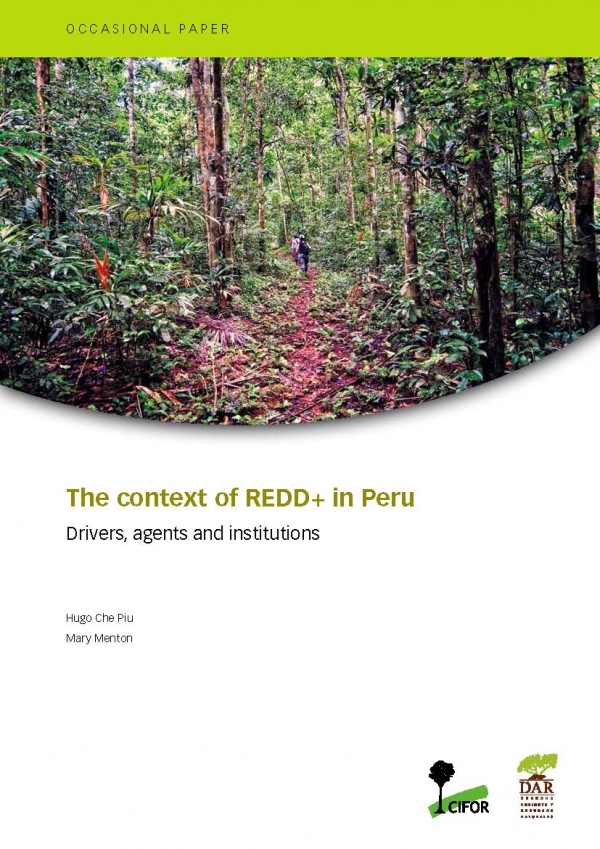The context of REDD+ in Peru: Drivers, agents and institutions

This country profile contains an analysis of the causes of deforestation and forest degradation in Peru, and the economic, institutional and political context in which REDD is emerging in the country.
Peru has a total forest area of approximately 73 million hectares, almost 60% of national territory. In the past few years, deforestation decreased from 150,000 ha/year to 106,000 ha/year but it still represents one of the biggest sources of greenhouse gas emissions in the country. While it has decreased recently, an increase is expected during coming years due to development policies that support the expansion of road infrastructure in the Amazon, an increase in agricultural production and support for the extractive sectors.
The government has declared a goal of reducing to zero the deforestation rate across 54 million hectares of primary forest by 2021, and has initiated the preparation process for REDD+ (Reducing Emissions from Deforestation and Forest Degradation Plus) at a national and subnational level. While the pilot projects are already underway, with international and national funding, and even certification according to international standards, the national government is still in the process of developing REDD+ and MRV (Measuring, Reporting and Verification) strategies under the leadership of MINAM.
Even if REDD has solid support within certain sectors of the government and civil society, it will face big challenges during the implementation phase due to a lack of intersectoral coordination and support to a socioeconomic development that would stimulate conservation and stop deforestation and degradation. In the process of preparation for REDD+, the country has advanced with the processes of safeguarding the participation of the civil society and the protection of native and local communities rights.
At the same time, the challenges concerning weak governance at a national and regional level and conflicts of interest are threats to the effective, efficient and equitable implementation in the long-term.
- Authors: Piu, H.C.; Menton, M.
- Topic: REDD+,climate change
- Geographic: Peru
- Series: CIFOR Occasional Paper no. 106
- Publisher: Center for International Forestry Research (CIFOR), Bogor, Indonesia
- Publication Year: 2014

Facebook comments